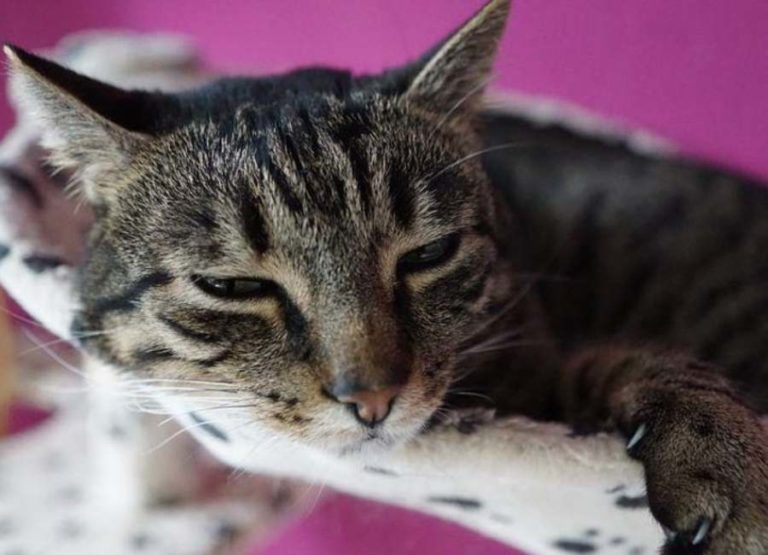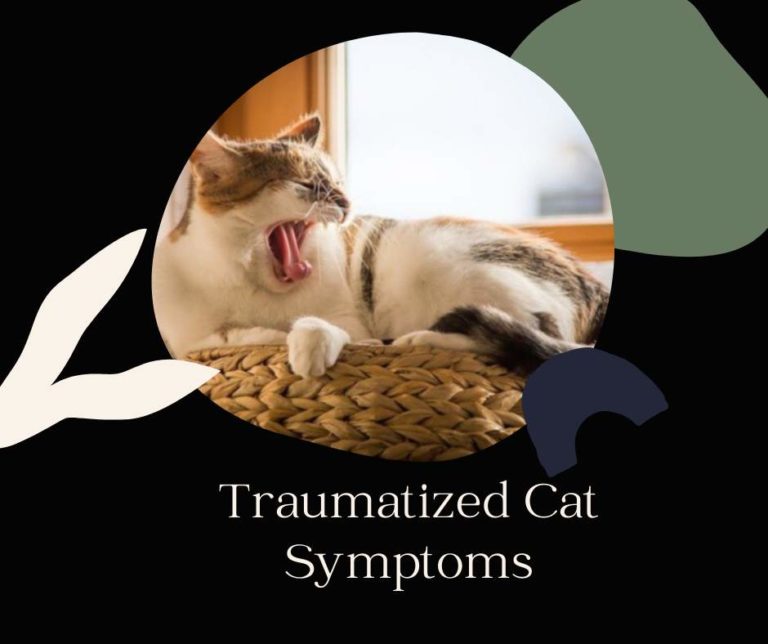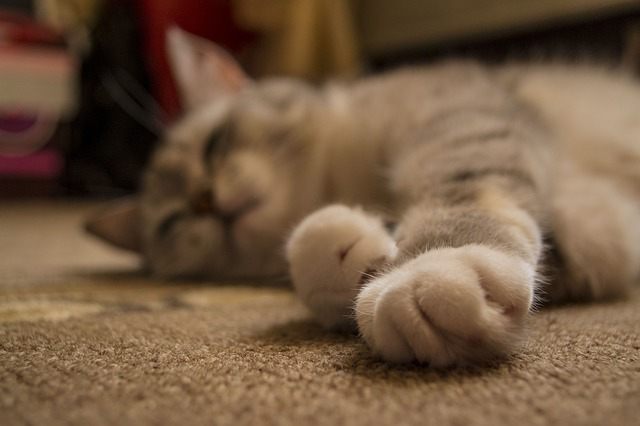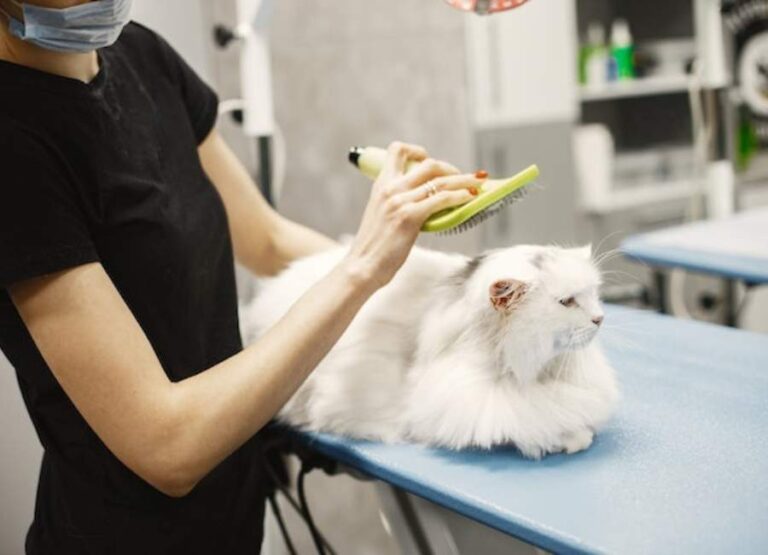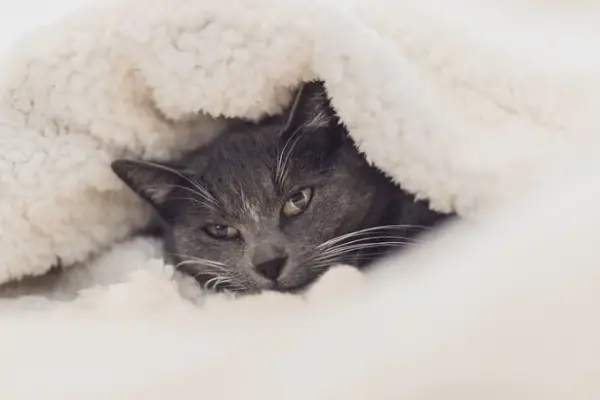10 Signs of Depression in Cats [Causes & Tips]
![10 Signs of Depression in Cats [Causes & Tips] Signs of Depression in Cats](https://petcreeks.com/wp-content/uploads/2021/07/Signs-of-Depression-in-Cats.jpg)
Signs of depression in cats have been asked a lot by cat owners and in this article, we will discuss the common causes and signs of depression in cats.
Cats can suffer from depression – when they stop playing or engaging in other everyday behaviors.
Signs Of Depression In Cats
Here are the common signs of depression in cats:
1. Threatening Behavior
One common sign of depression in cats is the cat becoming aggressive.
If your cat suddenly starts growling or showing signs of aggression, this could be a sign of depression.
Most of the time, this behavior will go away if your cat starts feeling better, or it is a temporary depression that will go away.
More on some common cat behavior concerns.
2. Decreased Appetite
In some cases, a cat can develop depression due to a change in diet.
Your cat may be eating less because of depression, or your cat may not eat as much as it normally does.
In any case, it is always a good idea to check your cat’s diet with your vet.
A cat can get depressed and most of the time a clear sign is a decrease in appetite.
More on why your cat might stop eating altogether.
3. Decreased Activity Level
Some cats experience depression due to physical problems.
If your cat is inactive, the cat may be physically or mentally unable to do normal activities such as running or jumping.
This may mean that your cat has lost the use of his legs, is ill, or that your cat may be depressed.
A depressed cat will refuse to take part in a normal daily routine or activities, you should always look out for your cat’s activity level.
More on why your cat might be lethargic and not eating.
4. Disturbed Sleep
In some cases, cats develop depression because of emotional or psychological problems.
If your cat is exhibiting abnormal behavior, this may be a sign of depression.
Some of the signs of depression in cats are decreased activity, depression in an older cat, aggression, and difficulty sleeping.
More on why your cat might be sleeping so much.
5. Excessive scratching
When your cat starts scratching furniture or its scratch post more frequently than usual, it’s a good sign of depression in cats.
Pay attention to how often your cat uses the scratch post so that you can always notice changes.
If your cat is sad or depressed, it may scratch objects more than normal in order to relieve stress and mark its territory.
6. Attempting To Escape
A depressed cat will always move away from its territory if the cause of the depression is in its territory.
A depressed cat is never relaxed, and will always want to escape from what is causing the depression.
So, if your cat is always attempting to escape at every little opportunity, you should try to figure out what is making the cat uncomfortable.
7. Giving away possessions
A depressed cat sees everything to be so annoying and would want to destroy or put away everything around it.
Frequent chewing of toys is a good way to understand your cat is depressed.
8. A decrease in association with other animals
A depressed cat always wants to be alone and would not want the company of other pets.
Some depressed cats try as much as they can to avoid other animals as well as their owners.
So always look out for when your cat starts to avoid humans or other animals.
9. Uneasiness And Restlessness
A depressed cat is generally restless and uneasiness is a clear picture that your cat is depressed.
A depressed cat will not want to have eye contact with other animals even its owners too.
10. Rejecting food
Messing around with food even when they’re hungry is a clear picture of your cat being depressed.
Pushing food away and eating very little of the food is a sign of depression, and you should see your vet.
When a cat unnecessarily starts to reject his meal, it’s a sign of either depression, stress, or illness.
Causes Of Depression In Cats
Here are the common causes of depression in cats you should know;
Stress
Stress is a major cause of depression in cats, and if not properly treated or controlled it can lead to cats running away from home.
There are many ways a cat can get stressed out, but the common way is loud sounds and changes in routine or diet.
The arrival of a new pet
This is a major reason why cats are depressed, and it takes cats longer to recover from such depression.
There are simple ways to introduce a cat to a new home or pet, which is totally fine and safe.
Injury
If your cat seems to be in pain, schedule an appointment to have it checked out. Injuries may limit your cat’s ability to do things it once enjoyed.
Pain after an injury can also keep your cat from feeling as happy as it usually is.
Allergies
Especially during spring, the cat can feel extremely uncomfortable when suffering from allergies to pollen or dust.
Food allergies can also cause depression in cats.
Fluctuations in routine
A cat that is not used to change in its routine ends up suffering from depression when it is faced with a sudden change in its routine.
If you keep changing your cat routine your cat can end up becoming depressed.
Fear of falling
Let’s say your cat fell from somewhere where the cat was at the kittens stage, and now in the adult stage, the cat can still remember that event, this can cause depression.
Cats are afraid of falling off objects such as stairs, but this fear can be associated with depression in some cases.
Sad cats are more reactive, and they may act aggressively or fearfully.
If you see changes in your cat’s behavior that make them fearful or aggressive, they may be sad.
Toothache
One of the main causes of depression in cats is a toothache.
The cat suffers for a while before the tooth stops grinding and grows out. The cat then forgets all about his depression.
Illnesses
A cat can be depressed because the cat is very ill or the cat is in deep pain.
Your cat may not be its playful self if it hurts to move around.
The cat might feel nauseated, not want to eat, have a hormonal imbalance, or have no energy due to the illness.
Coaxing the Cat Out Of Depression
Here are some common ways to help your cat feel better:
- Spend time with your cat: Make sure that you are spending quality time with your cat every day. Play with them, cuddle them, and give them plenty of attention.
- Provide toys and mental stimulation: Make sure that your cat has plenty of toys and activities to keep them occupied. Puzzle feeders, scratching posts, and toys can all help to provide mental stimulation.
- Create a comfortable environment: Ensure that your cat has a comfortable and safe place to sleep and relax. Provide them with a cozy bed and make sure that they have access to fresh water and food.
- Provide high-quality food: Make sure that your cat is eating a nutritious diet that meets its needs.
- Keep their environment clean: Make sure that your cat’s litter box is clean and that their living space is kept tidy.
- Consider getting another cat: If your cat seems lonely or isolated, consider getting another cat to keep them company.
- Encourage exercise: Encourage your cat to exercise by providing opportunities to run, play, and climb.
- Consult with your vet: If you are concerned about your cat’s mood or behavior, discuss your concerns with your vet to rule out any medical issues that may be contributing to their low mood.
- Provide love and affection: Finally, make sure that you are providing your cat with plenty of love and affection. Just like people, cats thrive on love and attention, and they will be much happier when they feel loved and cared for.
How to prevent depression in cats
Here are some common methods of preventing cat depression:
- Playtime: Playtime is crucial for cats, and it helps to keep them physically and mentally stimulated. Ensure that your cat has enough toys, and engage them in playtime sessions.
- Socialization: Cats generally socialize differently from humans, but they still crave companionship. Ensure that you interact with your cat regularly and provide them with the opportunity to interact with other cats, if possible.
- Diet: A healthy diet can go a long way in preventing cat depression. Ensure that your cat is on a balanced diet, and if your cat is on medication, ensure that the medication is not causing any side effects.
- Environment: Ensure that your home environment is comfortable and stress-free for your cat. Provide them with a cozy bed, a quiet place to relax, and a safe and secure outdoor space.
- Exercise: Exercise helps to keep cats fit and healthy, and it can also help to alleviate depression. Ensure that your cat has enough space to run around and engage in physical activity.
- Grooming: Regular grooming helps to keep cats clean and healthy. Ensure that your cat is well-groomed, and check their skin and coat for any signs of illness or injury.
- Adequate Rest: Adequate rest is essential for cats. Provide your cat with a comfortable and quiet place to rest, and ensure that they are not disturbed during their rest times.
- Routine checkups: Regular checkups by a veterinarian can help to identify any health issues early and prevent depression caused by illness.
- Medications: In severe cases of depression, medication may be necessary. Consult with a veterinarian to determine if medication is necessary and the best course of treatment.
Conclusion
In conclusion, depression in cats is a serious issue that should not be ignored.
As a cat owner, it is important to be aware of the signs of depression in your feline friend and take action if necessary.
By recognizing the symptoms early on and seeking professional help, you can help your cat get back to their happy and healthy self.
Remember, your cat’s mental health is just as important as their physical health, so don’t hesitate to reach out for support if you suspect they may be struggling.
References:

